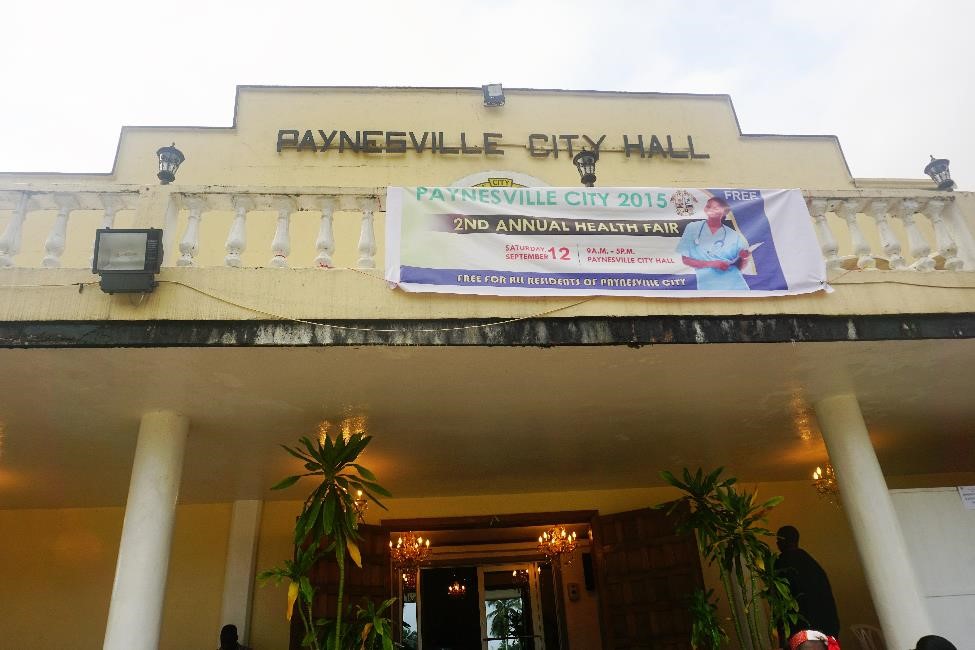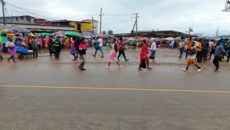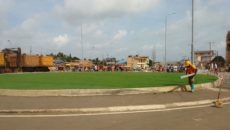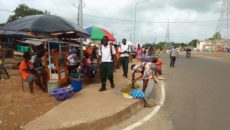At around 10 a.m. one morning, just as the sun’s rays were beginning to be felt, I decided to go jogging around my community. I had finally convinced myself to stop being lazy and came up with a routine that I felt was doable.
I had previously made excuses to myself about not being able to find an affordable, yet comfortable gym in Liberia and that’s why I hadn’t worked out for the first six months I spent living in Monrovia. After all, I was partly right. The few places I knew of cost either US$40 per month for a dark, damp, and smelly weight room, or US$140 for what I’ve heard is a much nicer, air conditioned environment.
Both of those prices were more than I had ever paid for a gym when I lived in Washington, DC. So why should I pay that price while in Liberia, where the cost of land and labor is cheaper? It didn’t make sense to me.
Back in the Washington, DC suburb of Arlington County where I used to live, I had access to numerous parks and fields with artificial turf and bright lights that allowed me to play with friends even when it was dark. The fields were free for residents to use when it wasn’t booked but the county also organized pickup games for a small fee – about US$70 for two days a week for three months.
This is what I had been used to, so it took me some time to adjust to my new reality. I figured I could alternate days between doing pushups in my apartment and jogging in the garden at the nearby Paynesville Town Hall. It wasn’t much, but it would be a good start.
This particular day, I entered the town hall’s compound and proceeded to stretch on a bench situated under a tree. I had my earphones on while I stretched but then realized there was a woman motioning to me. She wore a jumpsuit and was raking leaves nearby.
She asked me what I was doing there, and I told her I came to run. “You need to go talk to the security guard,†she told me. I told her the security guard was aware of my entry into the compound and didn’t say anything. The older lady kept on making a fuss about me being in the compound, adding that “they put the fence here to keep people outside.†I again told her that I just came to run and that I had seen people jogging in the garden before.
“Oh! You want exercise,” she said, in an apologetic tone. “I can see people here soon in the morning running, oh. The way the sun up like this, nobody can be exercising around this time oh. Me, I don’t know too much oh.â€
I then realized that my entitled and assertive tone was making the poor woman feel bad. She stopped questioning me and allowed me to continue stretching.
The experience was not my first in an attempted denial of access to what I construed to be public property. The park across from the Paynesville Town Hall used to be open for children of all ages to play in but it is now locked all day. It is reserved for weddings and special events.
The beautiful flower garden at the ELWA Junction is also only accessible to workers or people who pay money to the city. Travel across the river to the Chevron Monrovia Central Park and you’ll find that everyone must pay to enter. In order to enter, a child must pay US$1. These are not private parks – these are facilities built with or maintained with public funds.
And yet, the people cannot enjoy them.
What we have here is a country that does not belong to us. In this case, it is our own leaders who are disenfranchising the general population.
At the park opposite the Paynesville Town Hall is an elementary school. During recess and after school, the children run around and play in the street in the midst of cars, because they have been denied access to the park.
While I would like to see Liberian children grow up with the privileges I experienced while in the United States, even adults deserve to have access to parks and gardens. Organizations like the American Public Health Association recognize the importance of parks, gardens, and similar spaces in helping relieve stress and encourage physical activity, and they support towns and cities building these spaces and encouraging their residents to use them.
Monrovia and Paynesville do not have to create state of the art community centers with pools, indoor basketball courts, and weight rooms that cost US$50 per year to access (as I recently experienced in Boston, Massachusetts). But these municipalities can start to create and open up public spaces, parks, and trails for anyone to enter. They can still make their money from weddings and special events but there’s no reason to close the spaces to the public when no one is using it.
Featured photo by Jefferson Krua



